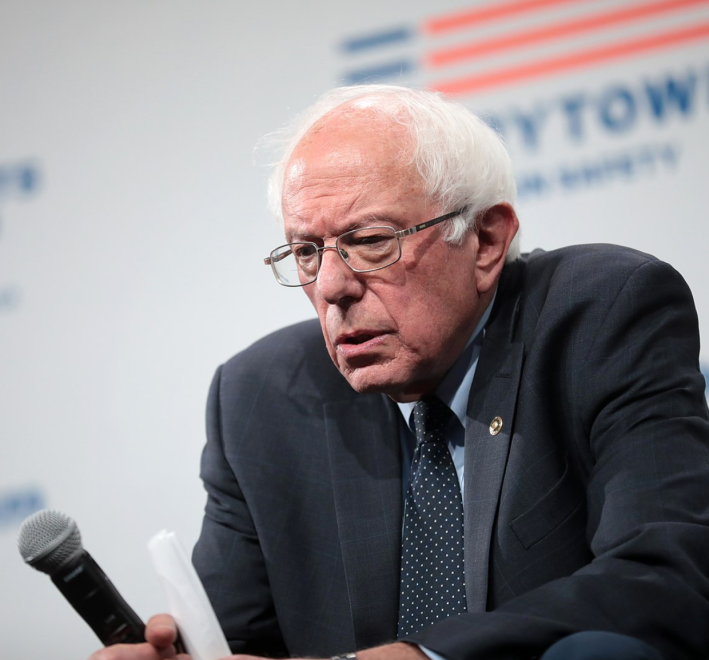The massive new infrastructure package announced on Tuesday promises to pump hundreds of billions into affordable housing and other policies that will make active transportation a viable option for more Americans — but it may also include big money for electric vehicles with little for other modes, unless advocates for active and shared transportation speak out.
Senior Democrats on the Senate Budget Committee said their $3.5-trillion spending package — which they expect to pass without Republican support through reconciliation if they can sway centrist members of their party to support the game-changing plan — would pave the way for an amended version of the American Jobs Plan, a transportation-focused infrastructure stimulus that President Biden has said he would not support unless the other elements of his agenda related to "human" infrastructure were addressed through a separate reconciliation bill.
But how humane that human infrastructure legislation will actually be towards vulnerable road users remains to be seen.

On the plus side, sources close to the negotiation process have claimed that the plan, which would be paid for by new taxes on corporations and wealthy Americans, will likely lay the groundwork for "hundreds of billions" of dollars in new spending that would expand access to affordable housing and universal preschool — two things which sustainable transportation advocates have long pointed out would be every bit as instrumental to encouraging walking, biking and rolling as building separated infrastructure for those modes, at least if such assets were situated proximal to jobs and other essential services.
The federal government spent just $51 billion on housing assistance in 2019, and a paltry $15 billion on early childhood education, all but ensuring that affordable options will remain a scarce and often distant resource even in the most sidewalk-rich communities.
But those same sources also indicated that the package could possibly resurrect some of the $100 billion in controversial tax incentives for electric vehicles, which were axed from Biden's original infrastructure stimulus during the negotiation process.
Dem plan would achieve 80% clean electricity by 2030, senior D aide tells reporters, w/ key planks including:
— Jeff Stein (@JStein_WaPo) July 14, 2021
-- Clean energy standard
-- Clean energy & vehicle tax incentives
-- CCC
-- Clean procurement
-- Weatherization/electrification of buildings
-- Clean energy accelerator
That news may be cause for concern among sustainable transportation advocates wary of climate change legislation that further enshrines car culture into American life. Certainly few argue that a transition away from fossil fuel-powered cars isn't essential to forestalling environmental collapse — at least in situations where it's positively necessary to keep cars on the road — but climate experts agree that it's virtually impossible for the transportation sector to achieve the emissions reduction targets necessary to save the planet by simply electrifying the existing automobile fleet. And an over-investment in electric vehicles over other modes, of course, will have no impact on the national traffic violence crisis that killed over 36,000 U.S. residents last year, including an accelerating number of pedestrians, or any of the other negative externalities of continued car dominance.
More forward-thinking solutions to cutting transportation emissions were included in the bipartisan redux of the American Jobs Plan, but investments into transit, biking and walking were slowly eroded throughout the negotiation process. Spending on transit expansion, maintenance and vehicle electrification was cut roughly in half from $110 billion to $56.5 billion; meanwhile, a much-lauded $20-billion program to reconnect BIPOC communities that were sundered by federal highways was cut down by 95 percent to a meager $1 billion. And since the most recent framework only offers a vague $109 billion for "roads and bridges" and $11 billion for "safety," the fate of originally proposed programs to build more bike lanes, sidewalks, and other safety investments into active modes remains completely unknown.
It's not impossible that some of those cuts could be reversed through the reconciliation package, too. Nonprofits groups like the Center for a Responsible Federal Budget have recently speculated that Senate could roll over as much as $45 billion in road and highway spending cut from the American Jobs Plan into the new reconciliation bill when all is said and done, though senior aides did not specifically flag programs that encouraged mode shift as part of the Democrats' strategy to clean up the transportation sector.
Reposting for extra super duper clarity for ppl who do not read carefully: This is not a leak of the WH-Dem plan; just rough estimates of what various items cost, to think thru what $3.5 trillion *might* get you pic.twitter.com/gDiX5PSLCO
— Jeff Stein (@JStein_WaPo) July 14, 2021
But if active transportation doesn't, in fact, get a last-ditch piece of the reconciliation pie, Biden may have just punted the bulk of his EV subsidies to a potentially untouchable package, while offering up investments into greener, safer modes as bargaining chips to the Republicans.






